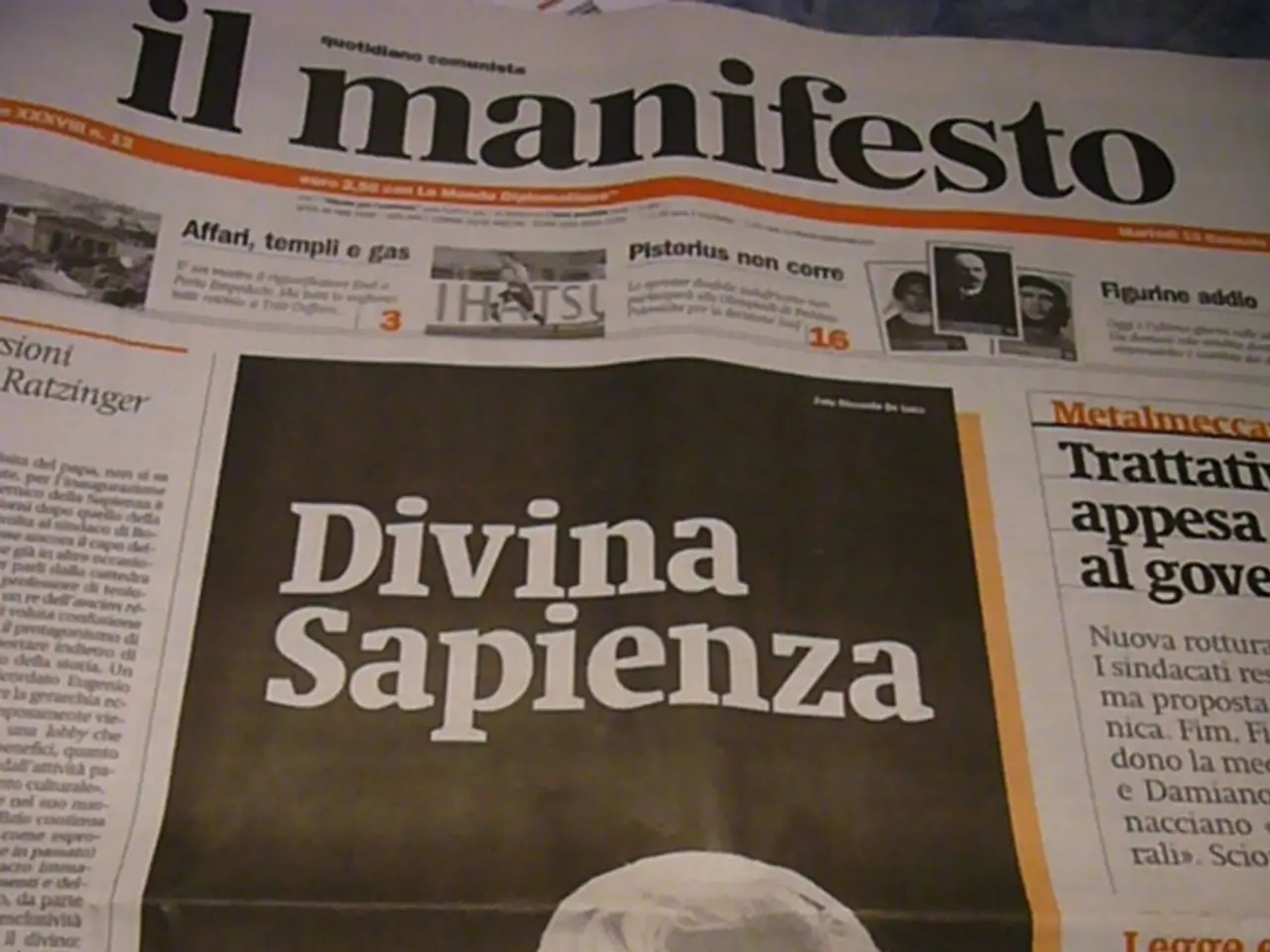Pollster Accuracy and Public Trust Levels
In a recent Gallup survey, only 31% of Americans expressed a "great deal" or "fair amount" of confidence in the media, marking a significant drop in trust levels compared to past decades [1]. This trend is further supported by a Pew Research Center survey, which found that only 17% had a lot of confidence in the national news media [1].
The Causes
The decline in public trust in the media can be attributed to several factors. One of the main causes is the frequent demonization of the press by senior government officials and others, who often accuse the media of spreading "fake news" [1]. This rhetoric fosters distrust and hostility towards journalists.
Another significant factor is the widespread perception of media bias and credibility problems. The public perceives that the media lacks fairness and accuracy, with disagreements prominent across Democrats, Republicans, and Independents [1].
The internet era has also contributed to the decline in media trust. The constant stream of often negative or alarming news, such as pandemics, wars, and economic uncertainty, leads to "news fatigue" [2]. Additionally, efforts to increase transparency, like Freedom of Information laws, can sometimes exacerbate suspicion rather than build trust [3].
Political polarization and the "infodemic" of overabundant and conflicting information further deepen mistrust and confusion among the public [5].
The Effects
The low trust in the media has several significant effects. A growing share (over one-third) of Americans express no trust in the media at all, and an even greater number report only a small amount of confidence [1]. This disengagement from news consumption leads to increased public skepticism and news fatigue.
The relentless flow of often negative or sensational news leads to emotional exhaustion and reduced information engagement, notably among younger and older generations who rely on social and online media [2].
Moreover, distrust in the media correlates with political dissatisfaction. Many feel disconnected from decision-making and perceive politicians and governance as irrelevant or unresponsive [3]. This disconnect can lead to the spread of misinformation, including false health claims spread on social media, which undermines public health efforts and trust in other institutions [4].
In conclusion, the combination of aggressive political rhetoric, media polarization, information overload, and negative societal events all contribute to low media trust, which in turn influences public disengagement, misinformation vulnerability, and weakened democratic participation.
- The wide-spread distrust in the media, polls indicating a lack of confidence in both the national news media and television, is especially prominent in the realm of politics and general-news, as increasing numbers of Americans express minimal trust or no trust at all in these areas [1].
- The polarized political climate, marked by conflicts across political lines and the abundance of contradictory information, plays a significant role in shaping public opinion towards the media, contributing to the growing cynicism and skepticism towards media outlets and pollsters, thereby fostering a disconnect between the public and decision-makers [5].







